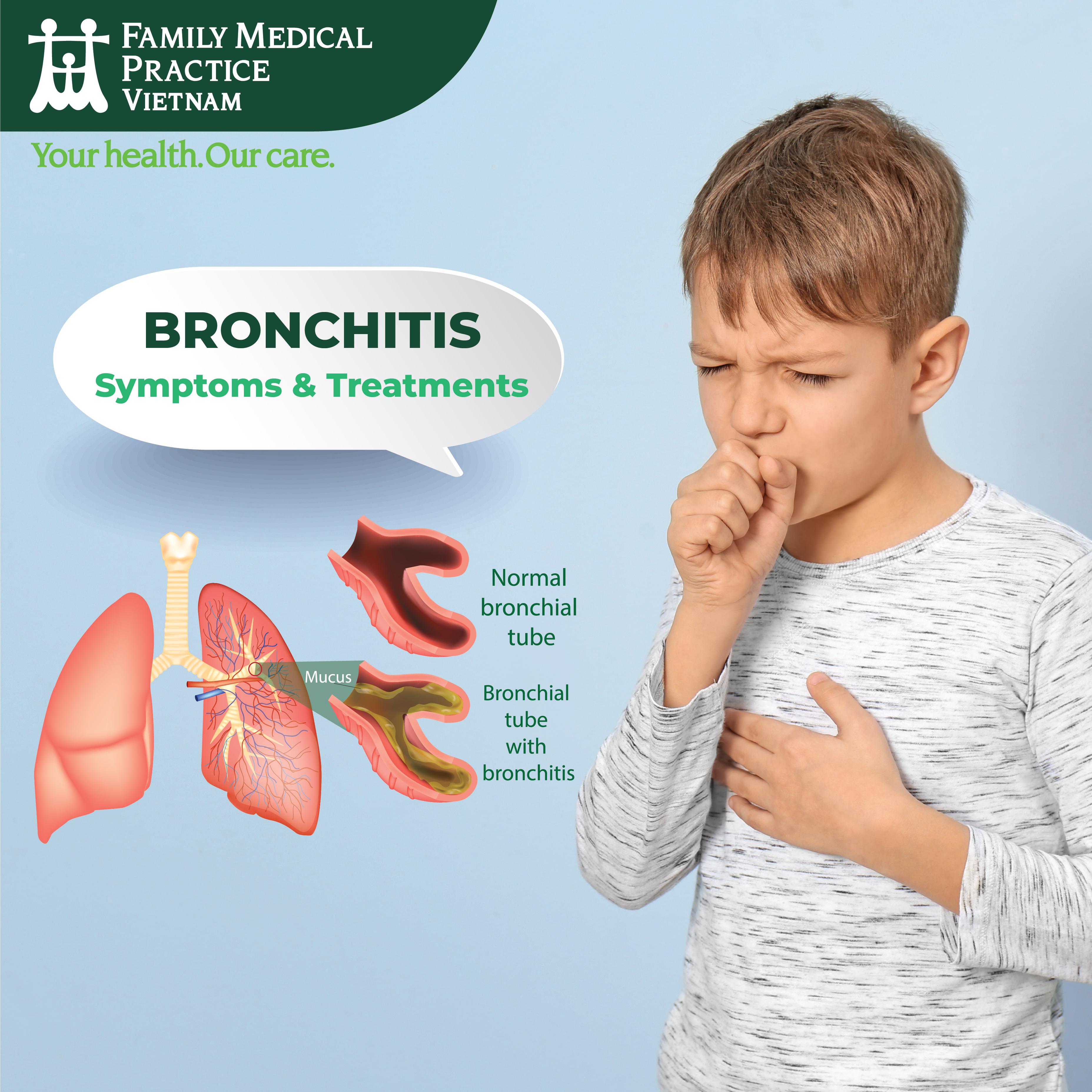World Updates | Update information about politics and social around the world
Bronchiolitis: Symptoms, Diagnosis, Treatment, And Prevention

Don't Ignore These Symptoms of Bronchitis in Children! - Family Medical - Source www.vietnammedicalpractice.com
Bronchiolitis is a common lower respiratory tract infection in infants and young children caused by the respiratory syncytial virus (RSV). The virus infects the bronchioles, the small airways in the lungs, causing inflammation and swelling. This can make it difficult for the child to breathe, leading to symptoms such as wheezing, coughing, and shortness of breath.
| Symptom | Diagnosis | Treatment | Prevention |
|---|---|---|---|
| Wheezing, coughing, shortness of breath, fever, runny nose | Physical exam, chest X-ray, pulse oximetry | Supportive care, oxygen therapy, bronchodilators | Handwashing, avoiding contact with sick people, RSV vaccine |
FAQ
This FAQ section provides essential information regarding Bronchiolitis, addressing common concerns and misconceptions.
Fixing a Class II Bite: Diagnosis, Treatment, & Prevention | Hillam - Source www.hillamorthodontics.com
Question 1: What are the primary symptoms of Bronchiolitis?
Bronchiolitis typically manifests with symptoms such as coughing, wheezing, rapid breathing, and difficulty breathing, particularly in infants and young children.
Question 2: How is Bronchiolitis diagnosed?
Diagnosis involves a physical examination and medical history review. A healthcare professional may listen to the patient's breathing using a stethoscope to detect characteristic sounds.
Question 3: What are the treatment options for Bronchiolitis?
Treatment primarily focuses on supportive care, such as providing supplemental oxygen, fluids, and maintaining proper hydration. In severe cases, hospitalization and mechanical ventilation may be necessary.
Question 4: How can Bronchiolitis be prevented?
Preventive measures include regular hand hygiene, reducing exposure to secondhand smoke, and getting vaccinated against respiratory viruses like RSV.
Question 5: What is the prognosis for Bronchiolitis?
Most cases of Bronchiolitis are mild and resolve within a few days or weeks. However, complications can develop in some individuals, including pneumonia or respiratory failure.
Question 6: When should I seek medical attention for Bronchiolitis?
Immediate medical attention is crucial if the patient experiences difficulty breathing, bluish skin coloration, or persistent fever. These symptoms may indicate a severe infection or complications.
Remember that this FAQ section only provides general information and cannot substitute for professional medical advice. Always consult a qualified healthcare provider for an accurate diagnosis and personalized treatment plan.
Continue reading to learn more about Bronchiolitis, its causes, and effective management strategies.
Tips
Bronchiolitis is a common lower respiratory tract infection that affects infants and young children. It is caused by the respiratory syncytial virus (RSV) and can be spread through contact with an infected person or contaminated objects. Symptoms of bronchiolitis include coughing, wheezing, difficulty breathing, and fever. Bronchiolitis: Symptoms, Diagnosis, Treatment, And Prevention
Tip 1: Prevent the spread of RSV by practicing good hygiene, such as washing your hands frequently and covering your mouth and nose when you cough or sneeze.
Tip 2: Keep your child hydrated by offering plenty of fluids, such as breast milk, formula, or water.
Tip 3: Use a humidifier or cool mist vaporizer to help loosen mucus and make it easier for your child to breathe.
Tip 4: Elevate your child's head and shoulders to help improve breathing.
Tip 5: Avoid smoking around your child, as secondhand smoke can worsen bronchiolitis symptoms.
Tip 6: Call your doctor if your child's symptoms worsen, such as if they have difficulty breathing, are not drinking enough fluids, or have a fever that is not responding to medication.
Tip 7: There is no specific cure for bronchiolitis, but treatment can help to relieve symptoms and prevent complications.
Summary: By following these tips, you can help to prevent and manage bronchiolitis in your child.
Bronchiolitis: Symptoms, Diagnosis, Treatment, And Prevention
Bronchiolitis, a common lower respiratory tract infection in young children, warrants attention to its crucial aspects for effective management. These key elements encompass symptoms, diagnostic approaches, treatment options, and preventive measures, which cumulatively contribute to safeguarding child health.
- Symptoms: Wheezing, cough, and difficulty breathing
- Diagnosis: Physical examination, chest X-ray, and pulse oximetry
- Treatment: Supportive care, bronchodilators, and antibiotics (if bacterial infection)
- Prevention: Immunization against respiratory viruses, hand hygiene, and avoiding smoke exposure
Understanding these key aspects empowers healthcare providers and caregivers to promptly recognize and manage bronchiolitis. Early diagnosis and appropriate treatment can minimize complications, while preventive measures can significantly reduce the incidence and severity of the condition. Collaborative efforts in implementing these strategies are paramount in ensuring optimal child health outcomes.

Bronchiolitis in Children : Causes, Symptoms & Treatments - Dr. Ankit - Source www.ankitparakh.com
Bronchiolitis: Symptoms, Diagnosis, Treatment, And Prevention
Bronchiolitis is a common respiratory infection in infants and young children. It is caused by the inflammation of the bronchioles, the small airways in the lungs. The most common cause of bronchiolitis is the respiratory syncytial virus (RSV).

Bronchiolitis: Symptoms, Treatment and Prevention - Revere Health - Source reverehealth.com
Symptoms of bronchiolitis can include coughing, wheezing, fever, and difficulty breathing. In severe cases, bronchiolitis can lead to hospitalization.
Diagnosis of bronchiolitis is usually made based on the patient's symptoms and a physical examination. Chest X-rays may be used to confirm the diagnosis.
Treatment for bronchiolitis typically involves supportive care, such as rest, fluids, and oxygen therapy. In some cases, antiviral medications may be prescribed.
Prevention of bronchiolitis is important, especially in infants and young children. There is no vaccine available for RSV, but there are some things that can be done to reduce the risk of infection, such as frequent hand washing, avoiding contact with people who are sick, and covering the mouth and nose when coughing or sneezing.
Conclusion
Bronchiolitis is a common respiratory infection in infants and young children that can be serious. Early diagnosis and treatment are important to prevent complications.
There is no vaccine available for RSV, but there are some things that can be done to reduce the risk of infection. Parents and caregivers should be aware of the symptoms of bronchiolitis and should seek medical attention if their child develops any of these symptoms.
